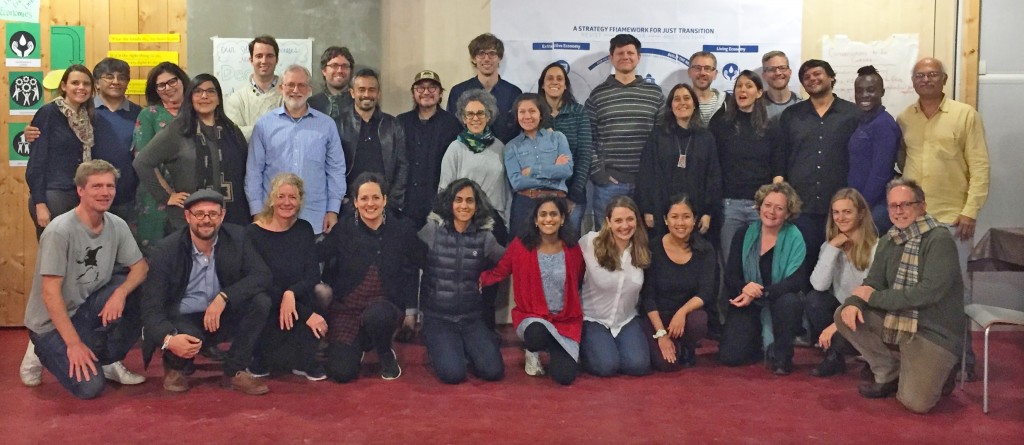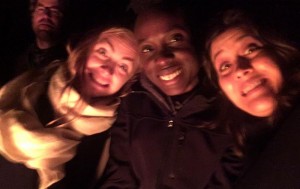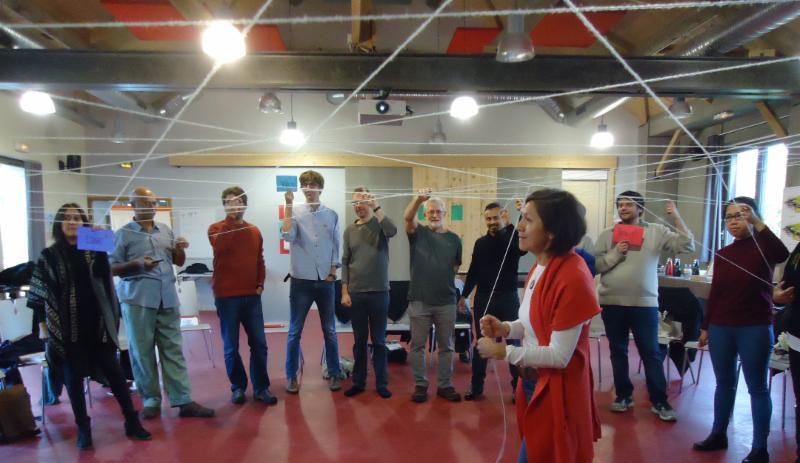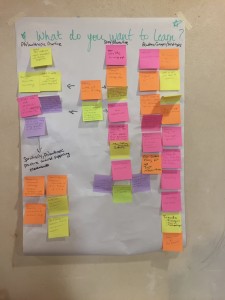
Global Engagement Lab (GEL) - Cohort 2017
Just before the holidays the EDGE’s Global Engagement Lab met for its inaugural meeting at La Bergerie in France, generously hosted by Fondation Charles Léopold Mayer pour le Progrés de l’Homme.
 Twenty-three funders from around the world, joined by EDGE staff, participant advisors and movement partners met to launch a six-month process aimed at how we, and philanthropy, can better address systemic crises through systemic alternatives, to support a just transition to a regenerative economy which centers community-based ways of thinking, doing, living and working. Hailing from five time zones, representing over ten languages and bringing an immeasurable diversity of wisdom, experience and curiosity, the first GEL cohort shared, learned, and planned for their next six months together.
Twenty-three funders from around the world, joined by EDGE staff, participant advisors and movement partners met to launch a six-month process aimed at how we, and philanthropy, can better address systemic crises through systemic alternatives, to support a just transition to a regenerative economy which centers community-based ways of thinking, doing, living and working. Hailing from five time zones, representing over ten languages and bringing an immeasurable diversity of wisdom, experience and curiosity, the first GEL cohort shared, learned, and planned for their next six months together.
One of the tenets of a regenerative economy is building community, they had lots of fun, too!
Guided by Arianne Shaffer, GEL coordinator and Indie Philanthropy Initiative director, and GEL’s three advisor-participants, Michelle Mascarenhas-Swan, Pablo Solón and Edouard Morena, the group moved together from discussions on the contours of global crises to movement and civil society responses. Then, from international policy and philanthropic programs to personal strategies for shifting philanthropy towards methodologies more responsive to and truly supportive of movements and alternative visions emerging from different cultures, communities and practice around the world.
The GEL employed a “zoom out/zoom in” strategy, discussing systemic crises, systemic alternatives and global alternative visions such as Buen Vivir, Just Transition, Ecofeminisms and Commons, in tandem with movement actions and philanthropic practice. In this way, GEL participants facing different challenges, bringing different strengths and cultural contexts, could connect their specific programs and personal experiences to broader shifts away from the “extractive” economy that dominates today.

On our last day together we toured part of La Bergerie’s surroundings – 100 hectares of agricultural land and 250 hectares of forest transformed by the foundation over the last two decades into an agro-ecological farm. The tour laid the groundwork for a discussion on Food Sovereignty principles and practices with Renée Velvé from GRAIN, an international non-profit working for the rights and autonomy of small farmers. Following the framing and curriculum provided by Pablo, Michelle and Edouard, this deep dive into issues of food sovereignty (as alternative to “food security”) provided keen insights and links across systems. This proved especially helpful for those whose grantmaking focus seemingly falls outside the food and agriculture realm, for example, public health, climate or gender justice.
The GEL will continue this model of learning, “zooming in” on specific responses to systemic crises within the context of alternative visions, and drawing out connections and lessons useful for programming and practices within foundations, whatever their own issues and concerns.
The GEL group ended the retreat at La Bergerie with karaoke and (of course) dancing and wine, but also with action plans for building on insights and learning over the next six months. As the participants took off for their respective homes around the world, they had large ideas to mull over, and also the beginnings of strategies they’ll develop before meeting again at the next in-person meeting in April, just before the EDGE annual conference in New Orleans.
 Cohort participant action plans currently range from building new narratives for the next economy, to “decolonizing” philanthropy, to developing new evaluation methods for program officers struggling with intersectional work of potential grantees. Some have plans to support previously un-funded work on the ground, with new understandings of how that work fits into their organization’s mission, while others have plans to organize and build power within philanthropy – within their own institutions and within the field more broadly.
Cohort participant action plans currently range from building new narratives for the next economy, to “decolonizing” philanthropy, to developing new evaluation methods for program officers struggling with intersectional work of potential grantees. Some have plans to support previously un-funded work on the ground, with new understandings of how that work fits into their organization’s mission, while others have plans to organize and build power within philanthropy – within their own institutions and within the field more broadly.
All these action plans are just beginning, and GEL cohort conference calls, peer-to-peer learning, online GEL chatrooms, shared readings and small get-togethers will keep this group learning and growing until we meet again IRL – “in real life.”
We’re looking forward to seeing where this takes us, and reporting back to the EDGE family as the six months go by.
For funders who are interested in learning more about the context, framing and individual explorations coming out of the Global Engagement Lab, please register for and join our Webinar on January 30 and plan to join us and GEL members in New Orleans from April 17th, at our annual conference: Come to the Edge.
